Inside Look at Emerald Restaurants
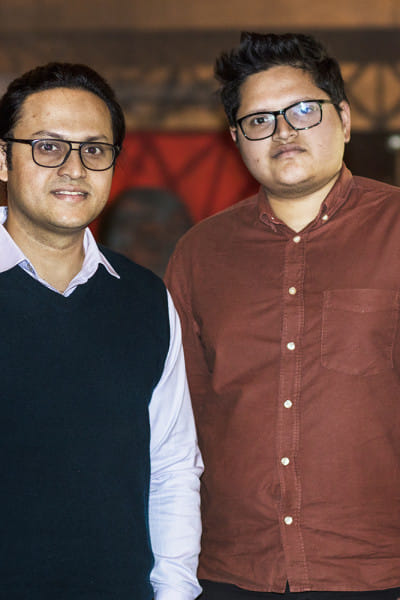
All our family members have always been ardent food lovers. Gradually, when we three brothers went to Singapore, America and Thailand for higher studies, we continued trying out different cuisines there. Thus, after coming back to Bangladesh, we decided to set up restaurants in the hope of bringing a refreshing change in the local food industry. Previously, we used to hear negative stories about restaurants in Dhaka, particularly about the kitchens. To change this, we opened our first restaurant, Thai Emerald, with an open kitchen concept in Uttara in 2012. Everyone could see what was going on inside our kitchen through glass windows. Though we were questioned if we would be able to maintain this system, we remained persistent as we saw people showing more faith towards us. Also, it kept the kitchen staff more alert about proper maintenance.
We were doubtful if the market was ready for such a venture because most upscale restaurants were situated in areas like Gulshan and Banani. So, to differentiate, we chose Uttara as it was a nascent location for a restaurant. At one point, we noticed that 30-40 percent of our customers were coming from Dhanmondi and Gulshan, covering long distances. That encouraged us to expand our business to other locations and therefore we opened our second outlet of Thai Emerald in Gulshan-1 in 2016. Since we had another spare floor there, we opened Kiyoshi in 2017, serving Japanese cuisine.
In our next venture, Trouvaille, established in 2018 in Uttara, we wanted to bring an amalgam of our previous two outlets, serving mainly Pan-Asian cuisine. The target was mainly to attract the youth so that we could explore more with new flavours.
To get into the bakery business, we started off with Emerald Bakery followed by Gusto. We used to experiment with the presentation of our food to bring more innovation. For example, we serve soup in bowls made of bread.
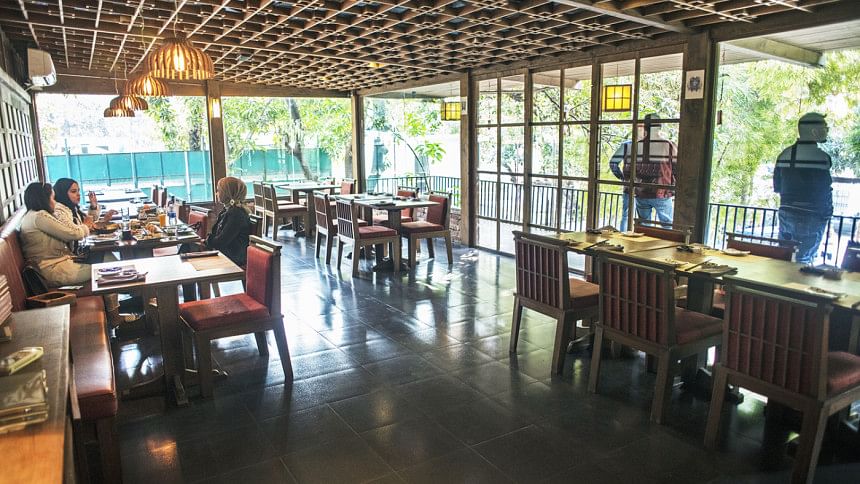
In the last four years, we have expanded our restaurants a great deal. We also set up our express outlets, such as in Chef's Table, Gulshan. Most of our restaurants always have a touch of Asian cuisine but Gusto had a European touch. By experimenting with Gusto, we could polish ourselves which helped us better manage our next venture, The Grove Bistro, serving European cuisine, opened in Gulshan Circle 2 in 2019.
At Kiyoshi, instead of serving only authentic Japanese cuisine, we also serve fusion Japanese food as it is a global trend now. Our popular dishes such as Ebi Meets Sake, The Crabby Affair, helped us decide the menu more easily in our other smaller outlets. Customers are happy to get these in convenient locations.
What challenges did you face and how did you overcome them?
Initially, the main challenge was establishing the brand. Thus, besides food, we emphasised upon the decoration a great deal which helped us attract more customers. My wife (Mr Shaker's wife), Rafia Mariam Ahmed, is an architect who designed Thai Emerald. The location was just a commercial building with an open space but she turned it into a cozy space where people could have a good time with a "zen feeling". We relied more on word of mouth marketing and did not opt for publicising through physical media. Kiyoshi, which garners a lot of praise for its unique ambiance, was designed by our brother, Sabbir Ibne Amin, who is a mathematician.
Our second challenge was teething problems – serving food on time and maintaining quality especially during rush hours, whether the foreign chefs would be able to properly communicate with the staff and vice versa. However, the encouragement from our customers helped us overcome these barriers and better ourselves.
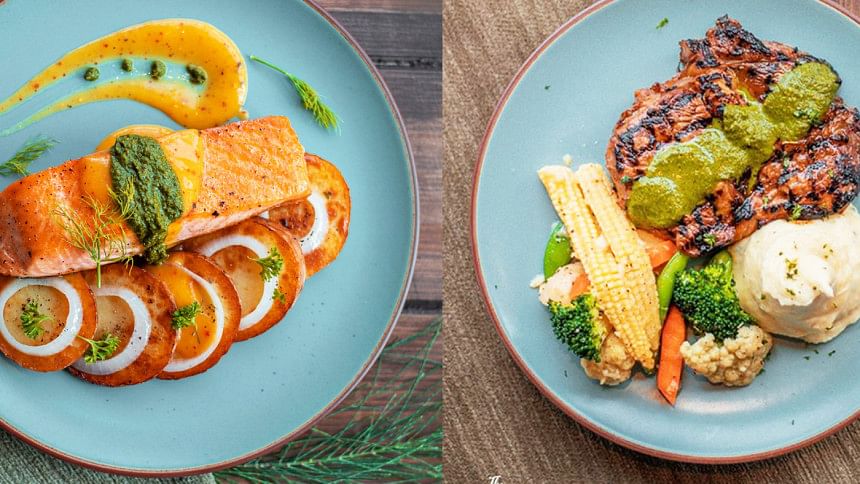
Since all ventures are managed by your family, how has this impacted your overall business?
Since we do not have external partners, having family support has been very helpful. We own up to our decisions, be they right or wrong. This allows us to take bold steps as we are not answerable to others.
Our mother has always encouraged us to try out new ventures and introduce new things as she is an entrepreneur herself. She was our financier when we started Thai Emerald and till now, she handles our finances.
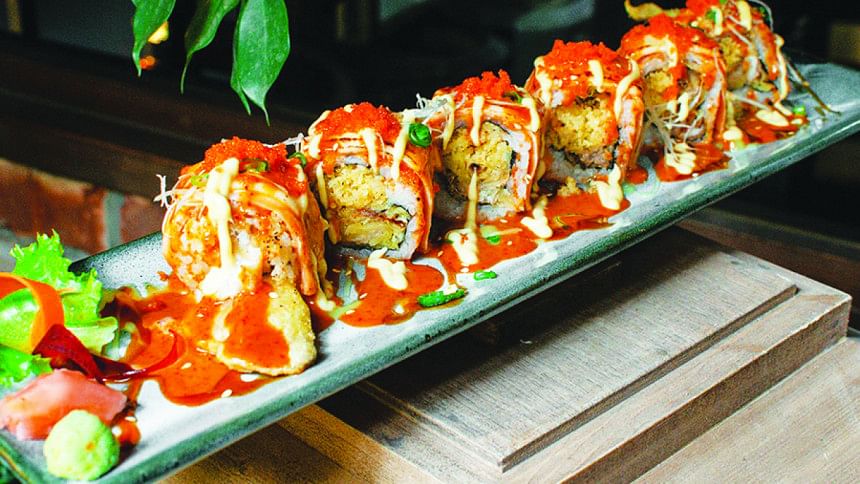
All of your restaurants carry their own signature, be it cuisine or ambiance. What is the idea behind it?
We have always felt that Dhaka is very chaotic. So, we wanted to create an ambiance so that whenever people enter our restaurants, they have a soothing atmosphere. We thought from customers' perspectives and made decisions on the types of food we would like to have and if they are good value for money. Also, since we set up everything from scratch, for instance, the menu is printed by our printing company and the furniture is made by our own team, all our ventures reflect our taste entirely.
Besides, we have always focused on differentiation. In most industries, copying ideas is very common but we wanted to target a cuisine and differentiate it in our own way. For instance, through The Red Chamber, we wanted to overcome the notion that Chinese food is bland. We have been to places in China that serve extremely spicy food. With the help of our three head chefs, we divided our menu into three cuisines—Szechuan, Cantonese and dim sums. Initially, this attracted the youth but now it is attracting a crowd of four generations.
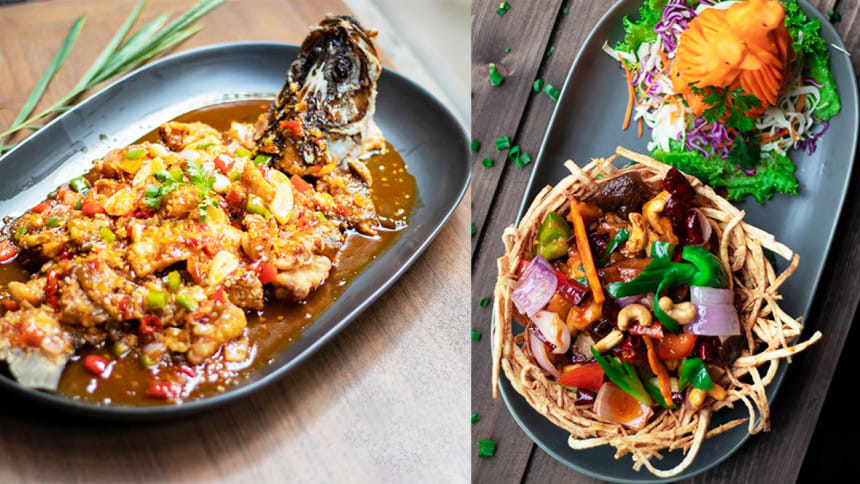
What advice would you give to aspiring restaurateurs?
Firstly, differentiating oneself is key. Secondly, having an ample amount of patience is necessary. It might seem easy to run a restaurant but when you are actually in the business, you see the challenges and therefore persistence is required. A lot of sacrifices and indefinite work hours are all a part of running a successful venture.
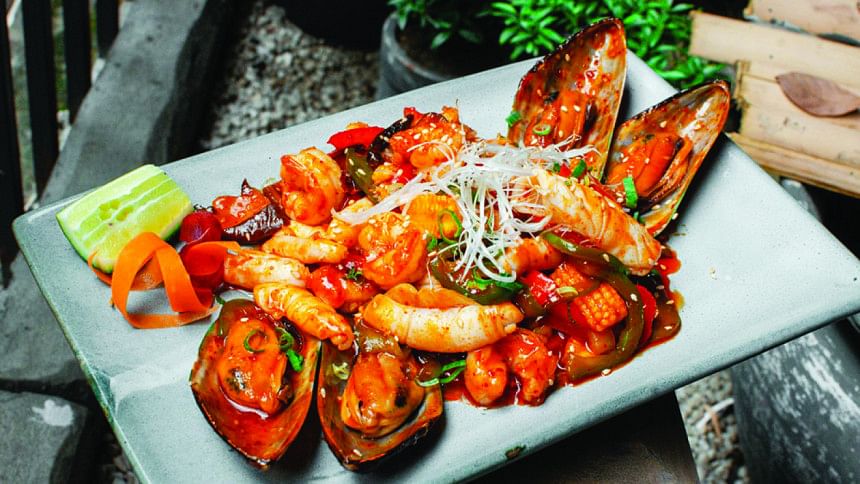
What surprises can Dhaka expect from this powerhouse of a family in future?
For the time being, we will keep expanding our current cuisines. We have explored Thai, Chinese and a bit of Western cuisines along with bakery. Our target now is to design new restaurants to make the food more interesting. We are also planning to launch a new restaurant this year called Deep Sea Eatery, focusing on seafood as such restaurants are rare in Bangladesh.
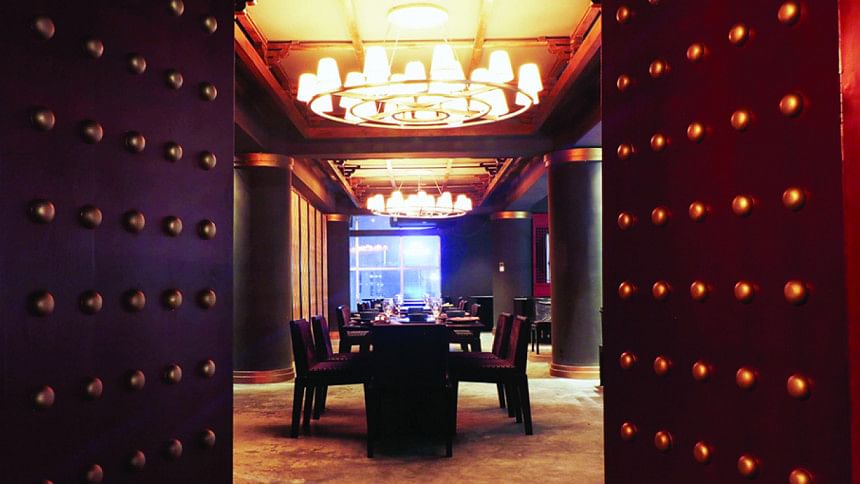
The interview was taken by Maisha Zaman of The Daily Star.

 For all latest news, follow The Daily Star's Google News channel.
For all latest news, follow The Daily Star's Google News channel. 



Comments